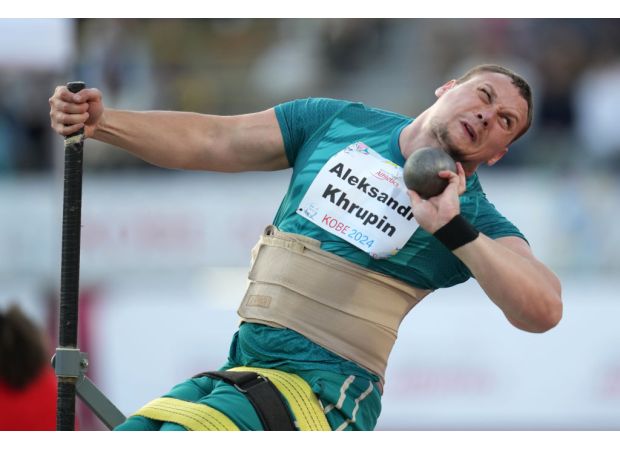NPA is short for "National Paralympic Association" and athletes are expected to follow specific regulations at the Paralympic Games.
More than 4,000 people are participating in Paris.

The 2024 Paralympic Games in Paris have brought together 4,440 athletes from 184 countries to compete in a variety of events. However, for a certain group of athletes, their participation is not as straightforward. These athletes are representing their countries under the NPA banner, or Neutral Paralympic Athletes. This includes athletes from Russia and Belarus, two countries that have been banned from the Olympics and Paralympics due to their involvement in the ongoing conflict in Ukraine.
As NPA athletes, these individuals are subject to a number of restrictions at the Paralympics. First and foremost, they must compete in neutral uniforms without any reference to their national flag, colors, name, or symbol. Instead, they will be represented by a white flag with black lettering spelling out NPA. This flag will be used during TV graphics and medal ceremonies in place of their respective national flags, which are banned from all Paralympic venues.
In addition, any symbols related to Russia or Belarus are also prohibited from being displayed at the Paralympic Games. This includes team sports, as both countries have been banned from participating in any team events. NPA athletes are also not included in the march at the Opening Ceremony and will not have a flagbearer at the Closing Ceremony on September 8th.
Furthermore, any medals won by NPA athletes will not be counted in the official medal table. In the event that one of these athletes wins a gold medal, the Paralympic anthem will be played instead of their country's national anthem. This is all part of the efforts by the International Paralympic Committee to ensure that NPA athletes have no ties to the ongoing war in Ukraine.
Similar restrictions were also placed on Russian and Belarusian athletes at the Olympics, but some, like Russian tennis star Andrey Rublev, declined the invitation to compete. One key difference between the Olympics and Paralympics, however, is that Russian and Belarusian athletes are allowed to compete in track events at the Paralympics, while their Olympic counterparts are banned from qualifying in those same events.
Despite these restrictions, there are still three times more Russian and Belarusian athletes participating in the Paralympics than in the Olympics. This includes 88 athletes from Russia and 8 from Belarus, highlighting the strong presence of these countries in the Paralympic Games. As with all athletes, NPA participants have been thoroughly vetted by the International Paralympic Committee to ensure they have no ties to the war or any military affiliations.
In the end, while NPA athletes may not be able to represent their countries in the traditional sense, they are still able to showcase their skills and compete in the Paralympic Games. And as the world comes together to celebrate these athletes and their abilities, the spirit of unity and sportsmanship remains at the forefront, regardless of any political conflicts.
1 Views






